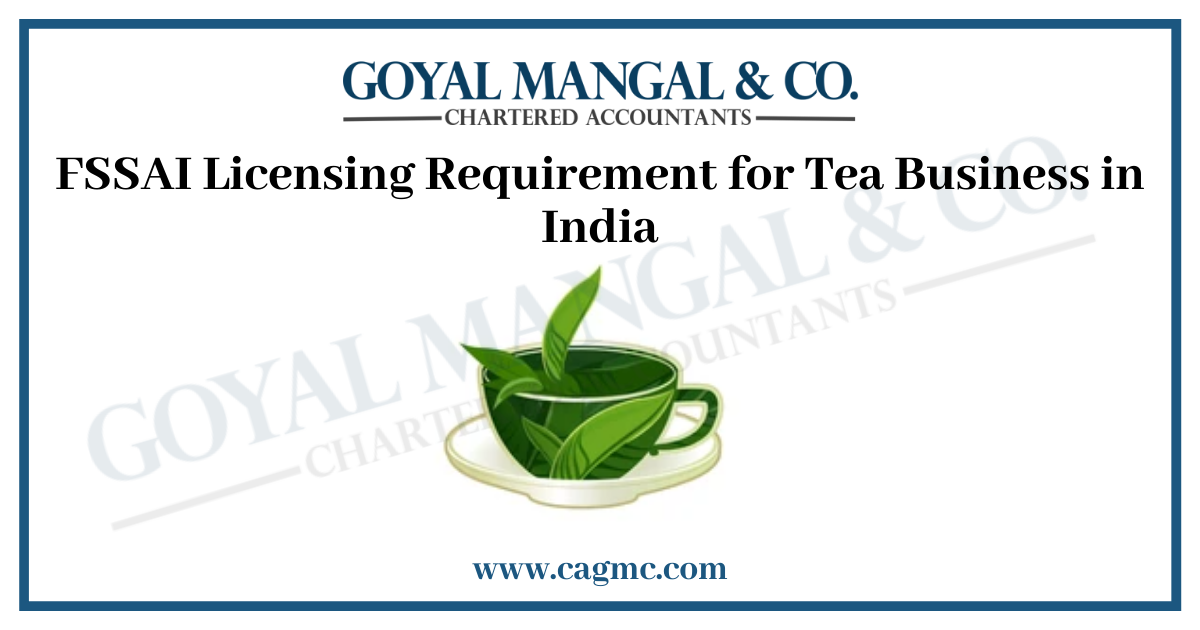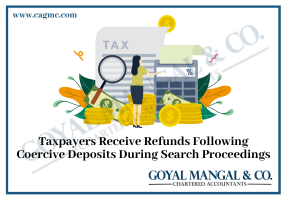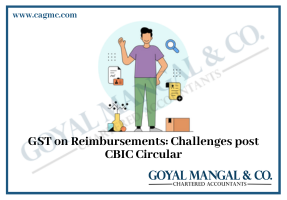
Tea is indeed one of the traditional beverages in India. India is one of the world’s largest tea users, As a result, the tea industry in India is one of the most profitable. Also as a result of the enormous Indian population, several new brands have been able to enter the Tea market. With the growing number of Tea brands, India’s food safety and standards authority (FSSAI) is taking steps to ensure that only good and safe Tea is sold and produced. In Contrast with the same, the FSSAI has issued some instructions outlining the laws and regulations that regulate India’s tea industry. Further in this blog, we will discuss more FSSAI Licenses for Tea Business in India.
What does FSSAI Stands for?
The Food Safety and Standards Authority of India (FSSAI) is a statutory organization under the Indian government’s Ministry of Health and Family Welfare. It is a leading government agency that sets standards for the sale, packaging, and storage of food in India. The Food Safety and Standards Act of 2006, which is a consolidating act related to food safety and regulation in India, formed the FSSAI. It is in charge of regulating and supervising food safety in order to safeguard and promote public health. Consequently, Food License is necessary for every food business.
Likewise, if you want to start a tea business in India, you’ll need to get approval from the FSSAI. A food license is necessary for all tea operations, whether they are for export or for local consumption.
Is FSSAI License essential for running a tea business in India?
Nowadays Consumers have become more cautious about the food or supplements they are consuming. They want to make sure the quality of products and are more aware of food safety compliance. Subsequently, they prefer to buy food that approves by the FSSAI Department.
The Food Safety and Standards Authority of India regulate all food-related permits in India. Tea is a popular beverage in India and is consumption is almost everywhere. As a result, the FSSAI will need to implement regulations to ensure that the tea provided is safe for human consumption. As a response, a tea business license ensures the customers that the tea they are drinking satisfies the necessary food safety standards. It also aids in demonstrating that the product is not contaminated or adulterated. Furthermore, the tea contains flavouring, and it must display an appropriate disclosure in the form of a label, as required by law.
What are Various Varieties of Tea defined as per FSSAI?
According to FSSAI standards, tea is known as a beverage and is divided into three variants:
- TEA- A TEA refers to tea that is not Kangra tea and is made purely from the leaves, buds, and fragile stems of the Camellia sinensis plant. It could be either black or oolong tea.
- KANGRA TEA- Tea manufactured from the stems, buds, and leaves of the Camellia sinensis plant, which grows in India’s Kangra and Mandi valleys. These beautiful tea leaves are grown in the Himachal Pradesh foothills and have a distinct flavour.
- GREEN TEA- Green tea is manufactured from Camellia sinensis leaves and buds that not subjected to the same withering and oxidation processes as oolong and black teas.
Set of Rules on which Tea Industry in India is governed
- Regulation 7.3.11 – In India, there are various restrictions on the marketing, offering, and sale of Kangra tea. All of these procedures should take place only after the tea has marked and graded in accordance with The Agricultural Produce Act of 1937.
- Regulation 7.3.12 – Selling of Flavoured Tea- Only manufacturers who are registered with the Tea Board should sell or offer for sale flavoured tea. The registration number should state on the product label. Flavoured Tea should offered in a package with a label statement, as stated in the policy or else, he or she will be subject to the penalties set forth in the FSS (Packaging and Labelling) Regulations of 2011.
Crucial Regulations for Entrepreneurs in the Tea Business
- The FSSAI has prohibited the use of any colorant in tea, but has allowed use of 0.2 percent pectinase enzyme to enrich the beverage’s flavour.
- All tea businesses, like any other food business in India, should be must have FSSAI Registration for operations like as production, marketing, and retail.
- Organic substances and natural food colouring additives permit in tea.
Mandatory Labelling of Product
Before applying for an FSSAI license, you must comply with the product labelling requirements as set forth by the FSSAI department. This is the most important step to take since the labelling includes all necessary elements and information before it can sell in the market.
According to these rules, the package must have the following information:
- Name and address of the manufacturer
- Name of the product
- Weight (Net)
- Date of Expiration
- Manufacturing date
- If imported, the origin of the country
- Details of the ingredients
- Packaging Codes or Batch Numbers
Tea Product Testing and Approval Standards
NABL Labs- Before launching a food product on the market, many food safety constraints, standards, guidelines, and so on must be evaluated. In India, tea must pass a series of tests and certifications. To ensure compliance with the FSSAI’s standards, all tea manufactured in the country must test in NABL labs.
Approval Standards of Product- The product must also be approved by the FSSAI. Because the FSSAI alters its rules and procedures on a regular basis, tea producers must keep up to current on the legislation in order to be compliant. As a result, it’s a good idea to hire a skilled FSSAI consultant who can guide and assist you in meeting all compliance requirements and obtaining the necessary license or registration.
Conclusion
In the Contrast with the above information we can now conclude that when a new food product is introduced to the market, it must be tested for a variety of food safety issues. So, it is necessary to follow FSSAI regulations in order to keep one’s business running. Every tea business operator in India must have an FSSAI license.







